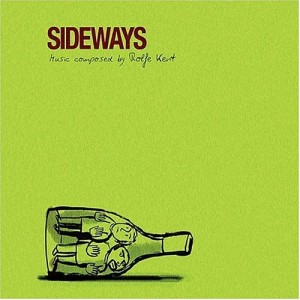Commedia
Theme Songs Page | Previous Theme Song | Next Theme Song
Commedia
Wine Safari, by Rolfe Kent (2004), encountered 2006
Buy it here | Available on Spotify | See it here
She’s okay, you know, the nun said, speaking of my mother who had just died a day or two before. We were sitting in the retirement community where my mother had spent her last, confused, unhappy years. The nun meant, of course, my mother’s soul, in the hands of God. She spoke confidently, and I told her confidently I was sure she was right. Her struggle with dementia was behind her; her good times had begun.
I was not to be so sure for very much longer. An uncertainty, very unfamiliar to me, was about to arise.
Belief
Nowadays, I look back with nostalgia at the way I thought and felt then.
I passed fifty-six years believing essentially what I had been taught in grade school by other nuns: that there was a God who gave both existence and meaning to life, a God who would preserve us from the death trap of our bodies, and even from the larger death trap of our universe.[1] I knew that this was what most of us desperately wanted to believe, but I also knew that merely wanting to believe something is no proof of its falsity. We also desperately want to believe there’s food and sex, for instance, and we can say, on the basis of overwhelming evidence, that such things do exist. The proofs for food and sex are more empirical than the proofs for the presence and agency of a deity, but still: wanting something to exist is no good reason, standing by itself, to disbelieve in it either.
And at the moment I’m speaking of, I had both sense and reasoning to persuade me affirmatively in my belief. I felt I could sense God’s immanence in various things: a shiver down my spine at the moment of the consecration, a frequent exposure to beauty and goodness in all sorts of places including my fellow-worshipers, and the sheer authority with which Jesus spoke. Nor was I unpersuaded by at least two of the philosophical proofs of God: the various perfections in the universe which made our corner of it such a suitable cradle for humanity, too convenient to be the plausible outcome of random events, and the inconceivability of there not being an uncaused cause at the start of the chain of events. I was well aware that neither my subjective senses nor the philosophical proofs were unassailable, but they were enough for me.
So I went on believing even after most of my contemporaries had given it up. I don’t think I was a grating bore about my somewhat passé point of view, but I wasn’t embarrassed of it either.
Dantean and Modern
And in that conversation with the nun I still was not. I still looked at life as a comedy in an older sense of the word, Dante’s sense: a progression from a world familiar with discord and pain to one from which these things will be banished.
That sense of life as comedy was far-reaching and had many roots, including my sense of the fundamental accuracy of the world-view of comedies in the modern sense: narratives intended to make us laugh, and to reassure us that in the long run all manner of thing shall be well.
One comedy-in-the-modern-sense that became emblematic of my viewpoint at that time was 2004’s Sideways, an aptly-titled road story about two middle-aged guys on a tour of California’s wine country. Every generic hurdle was surmounted – as must happen in road comedies – but in off-kilter fashion. One of the two travelers, Jack (Thomas Haden Church), is on a mission to get some pick-up sex notwithstanding that he is engaged to be married in a few days, and consequently the trick can only be pulled off by concealing this important fact from the women involved. The other traveler, Miles (Paul Giamatti), is unable to detach himself from his feelings for a wife who has not only left him but divorced him and remarried as well, even when a woman who is both appropriate and available slides into view. In unforeseeable and quirky fashion the universe seems to dispense happiness to them each, together with appropriate punishment for their respective sins, by the end.
I was able to enjoy it with my son, a budding cinéaste who was now (just) of an age to appreciate sex comedies, but I know he thought my enthusiasm for the movie excessive. The truth was, I was responding to the Dantean comedy in it, to the way everything moved toward the good and the beautiful, as much as I was responding to the comedy-in-the-modern-sense. It was important to me that the way things worked out for the best was unfathomable in advance, and full of moral ambiguity.
It chimed with my updated Dantean thinking. Clearly, if there was a God at the helm of the universe, He was a devious Bastard. All the bad things there were, all the pain and sickness and terror, all the death, somehow – or so my faith urged me to believe – were unimaginably transfigured into agencies of providential good. And I believed they were.
The film score for the movie, by Rolfe Kent, was absolutely a part of this. If you listen to any track of the soundtrack album for a spell, you’ll come to realize that the cheerful and agreeable surface of the cues is a bit deceptive. You keep hearing things that are wrong, that aren’t what your ears expect. I’m not saying that Kent was a full-fledged disciple of Thelonius Monk, the high priest of unexpected turns of melody and harmony; I am morally certain, however, that Kent was familiar with Monk’s oeuvre, and was very happily borrowing Monk’s line of attack.
What I had, then, when the movie came out, even when my Mother died, was a confidence that the universe made sense, that when the inmates were running the asylum, God was running the inmates, and that despite all the evidence to the contrary, the God running those inmates was benign. Like a confidence that Monk’s (or Kent’s) dissonances made sense: which in the end they always did.
Downloading a Boundary Line
That album was close to my first legal download, in September of 2006. By the moment I authorized Napster to fire the tracks to me over the telephone lines, Mother’s death, as I’ll discuss further in later pieces, was already wreaking unforeseen havoc in my psyche. I stood flummoxed, grasping hard for the old certainties and ways of looking at things. The Sideways album, purchased over a year after I’d seen the movie twice in theaters and some months after I’d bought the DVD, promptly became a sort of touchstone for me, an aural reminder of the careless confidence I had enjoyed but a short time before. Call it a musical boundary line.
Commedia on one side, something a lot less fun on the other.
_______________
[1]. The physicists tell us that, owing to the Second Law of Thermodynamics, everything must eventually cool down to the point that human lives, which require warmth, can no longer go forward. Christians of all stripes, including all Catholics, are taught to anticipate an end of this creation, when, as our creed says, Jesus “will come to judge the living and the dead.”
Copyright (c) Jack L. B. Gohn, except for cover art and production still

